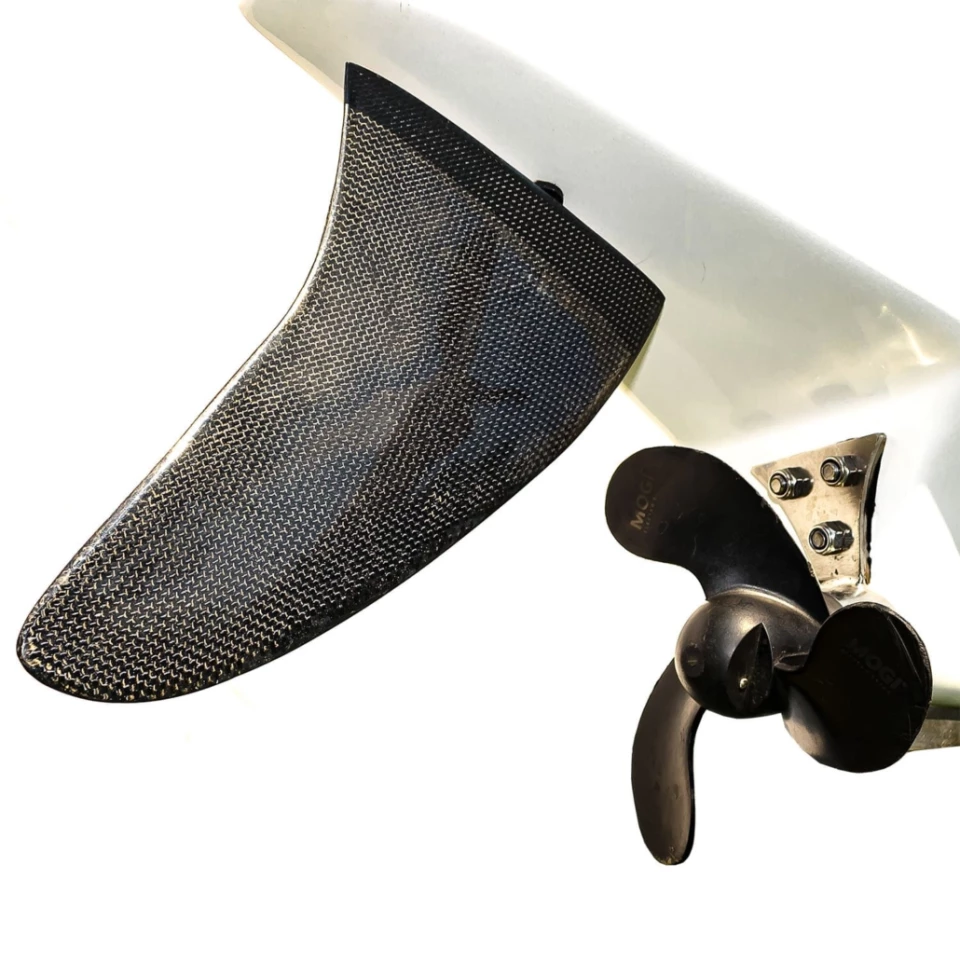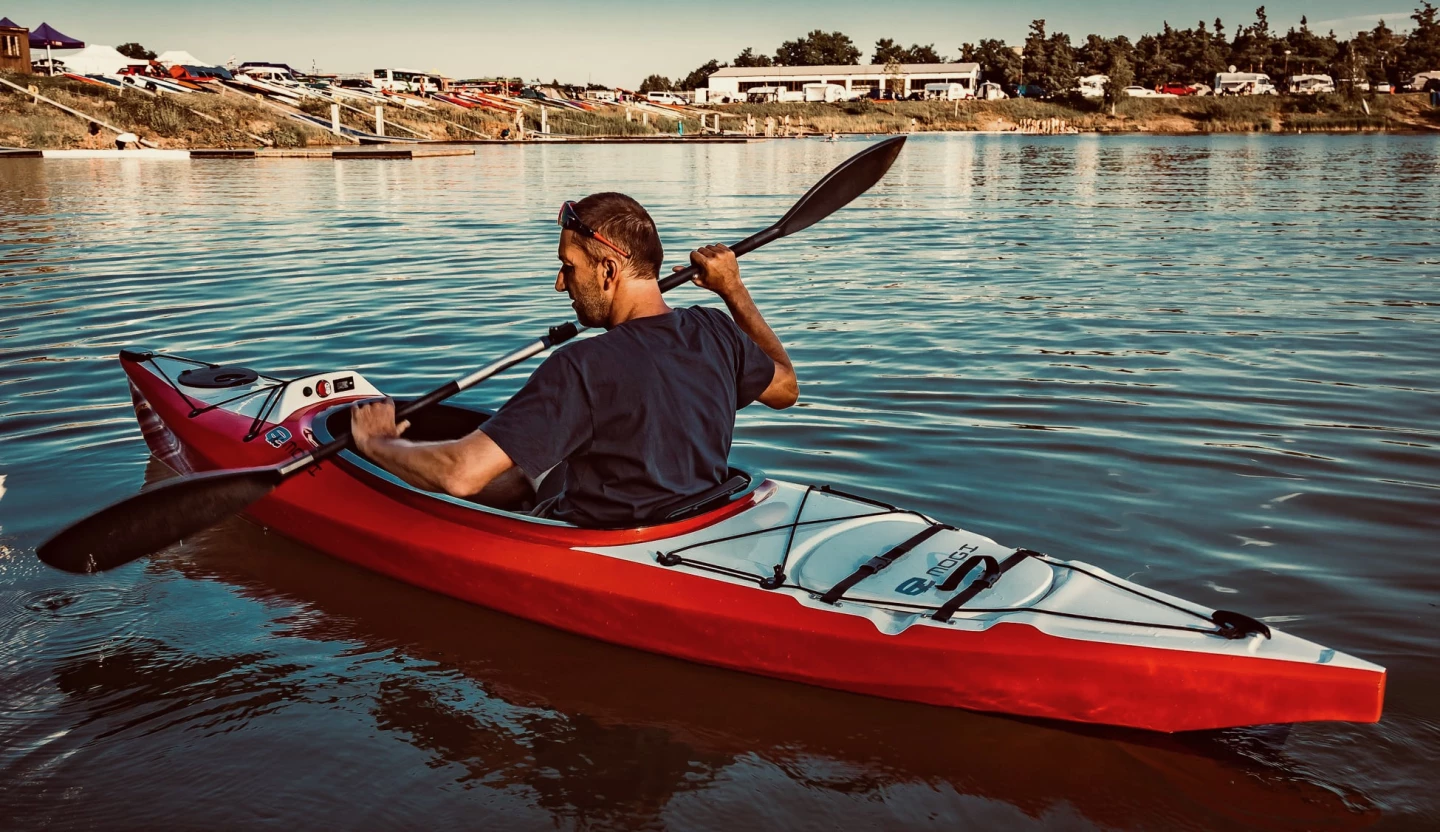While we have seen motorized kayaks before, most of them simply utilize an outboard motor, or they don't have the form factor of a true kayak. The Czech-made eMogi, however, looks fairly conventional, and has its own integrated electric motor.
Measuring 323 cm long by 70 cm wide (10 ft, 7 inches by 2 ft, 3.5 in), the sit-inside eMogi features a removable lithium-ion battery pack in the bow, a control panel and a telescopic steering wheel at the front of the cockpit, and a 1-kilowatt electric motor in the stern.
That motor spins up a propeller that protrudes more or less straight back from the keel. Users engage it using either a pushbutton on the steering wheel, or by pushing a button on the shaft of the included wirelessly linked paddle. The eMogi's steerable rudder is controlled either by pushing on foot braces inside the kayak, or by turning the steering wheel – and yes, the paddle can also be used.

There are three forward speeds plus reverse – the top speed is 10.7 knots (12 mph or 20 km/h). Buyers can choose between four battery capacities, with the highest (22.2 volts/1,340 Wh) reportedly being good for a runtime of up to seven hours per four- to five-hour charge. It should be noted, though, that figure is for the lowest speed setting. An extra battery can be stowed in a stern compartment, plus the kayak can of course still be paddled without the motor running at all.
According to its designers, the eMogi was initially designed for moving up rivers against the current. They add that it could now find use in applications such as getting anglers to fishing spots more quickly, marine research, emergency response, and opening kayaking up to people with limited physical abilities.

Should you be interested, a basic model with a 600-Wh battery will cost you €6,150 (about US$7,219). That particular setup is claimed to weigh 66.2 lb (30 kg).
The eMogi can be seen in use (unfortunately sans life jackets) in the video below.
Source: eMogi








